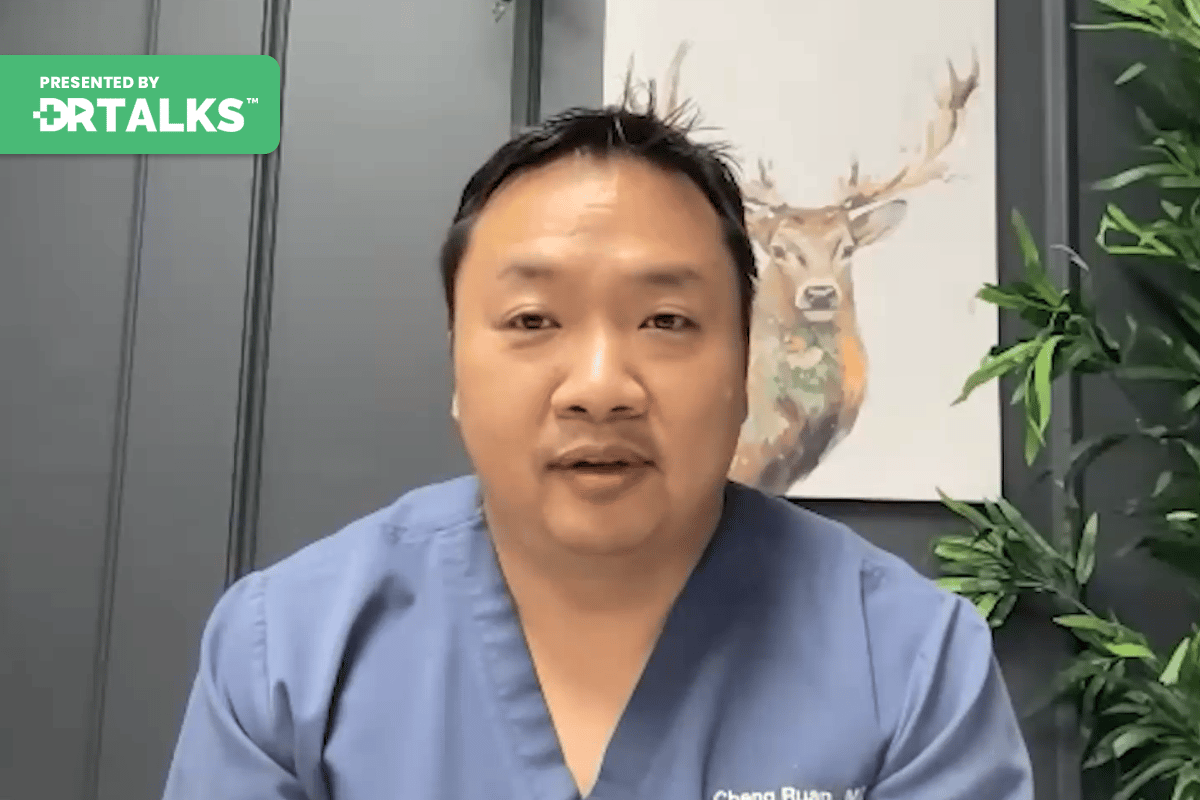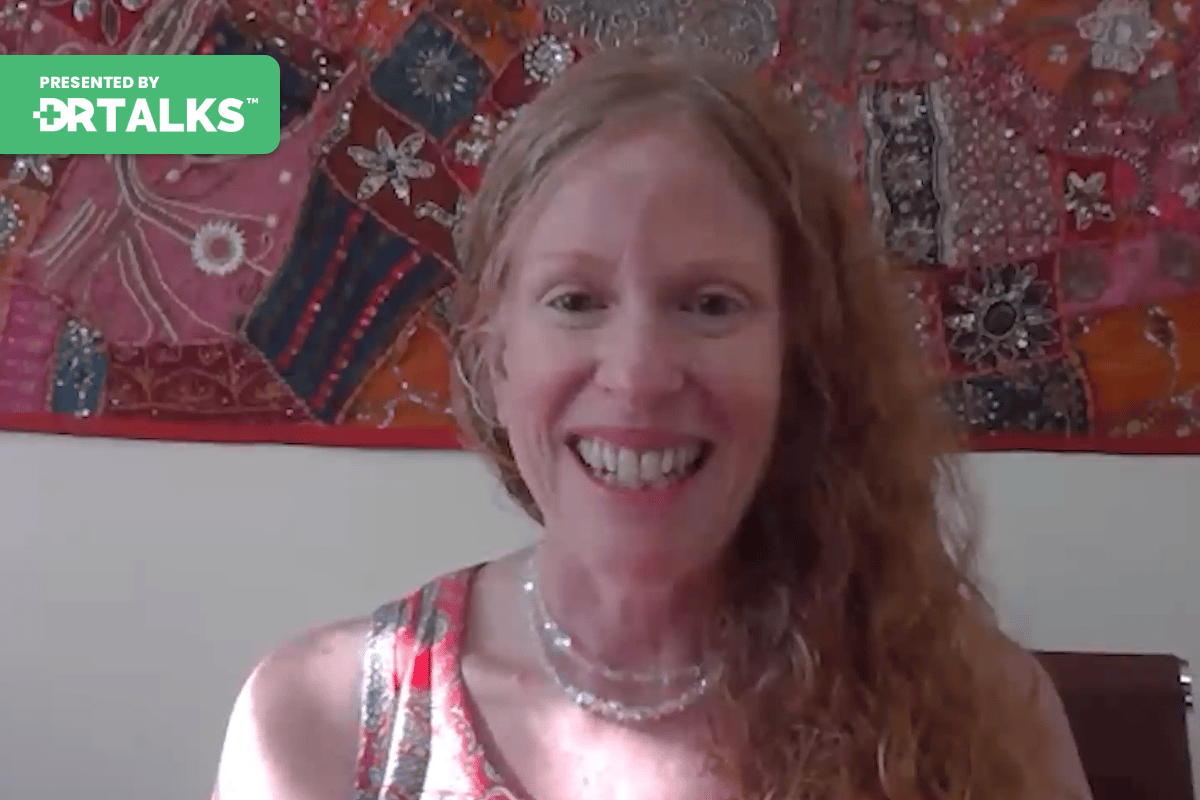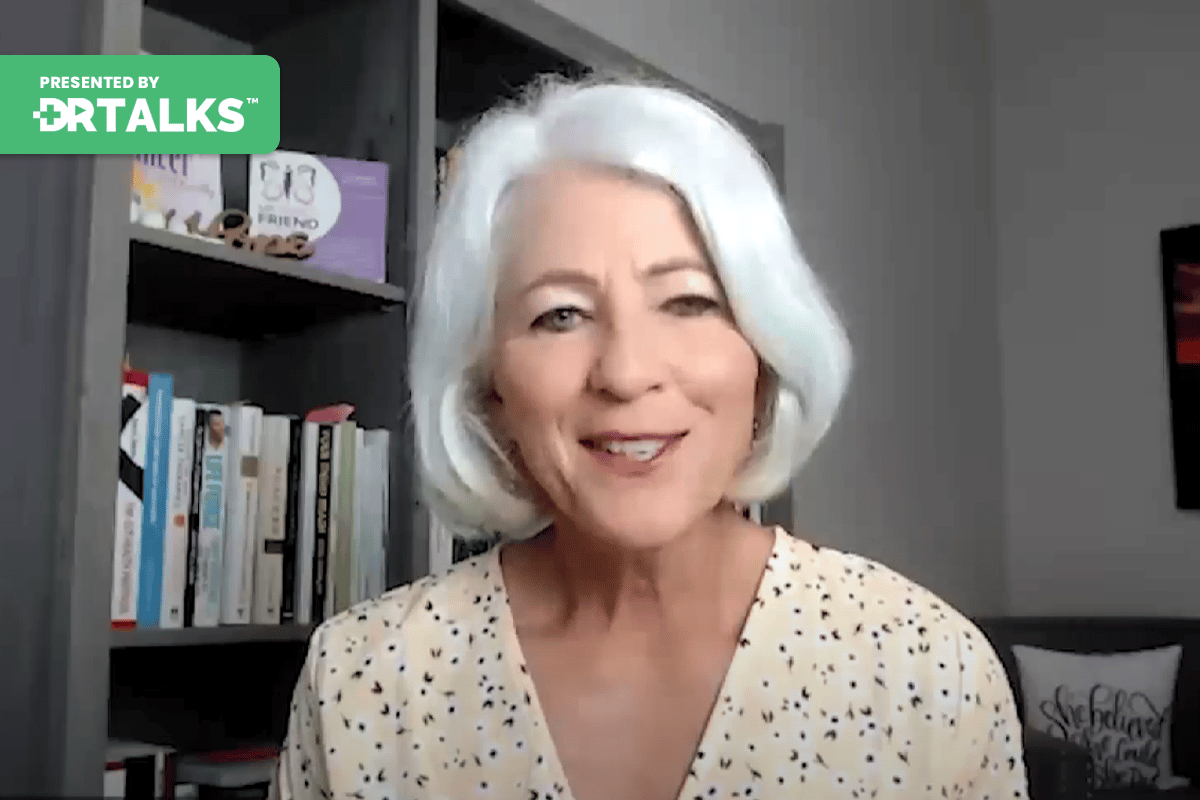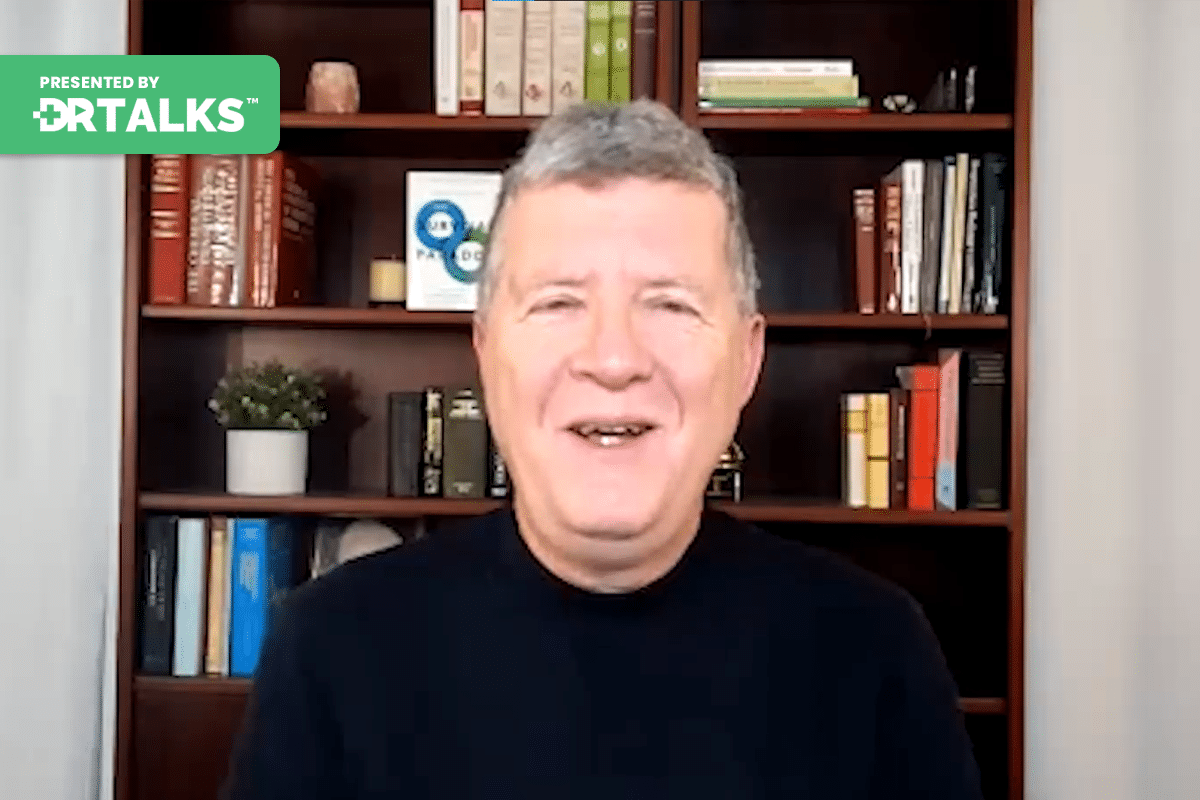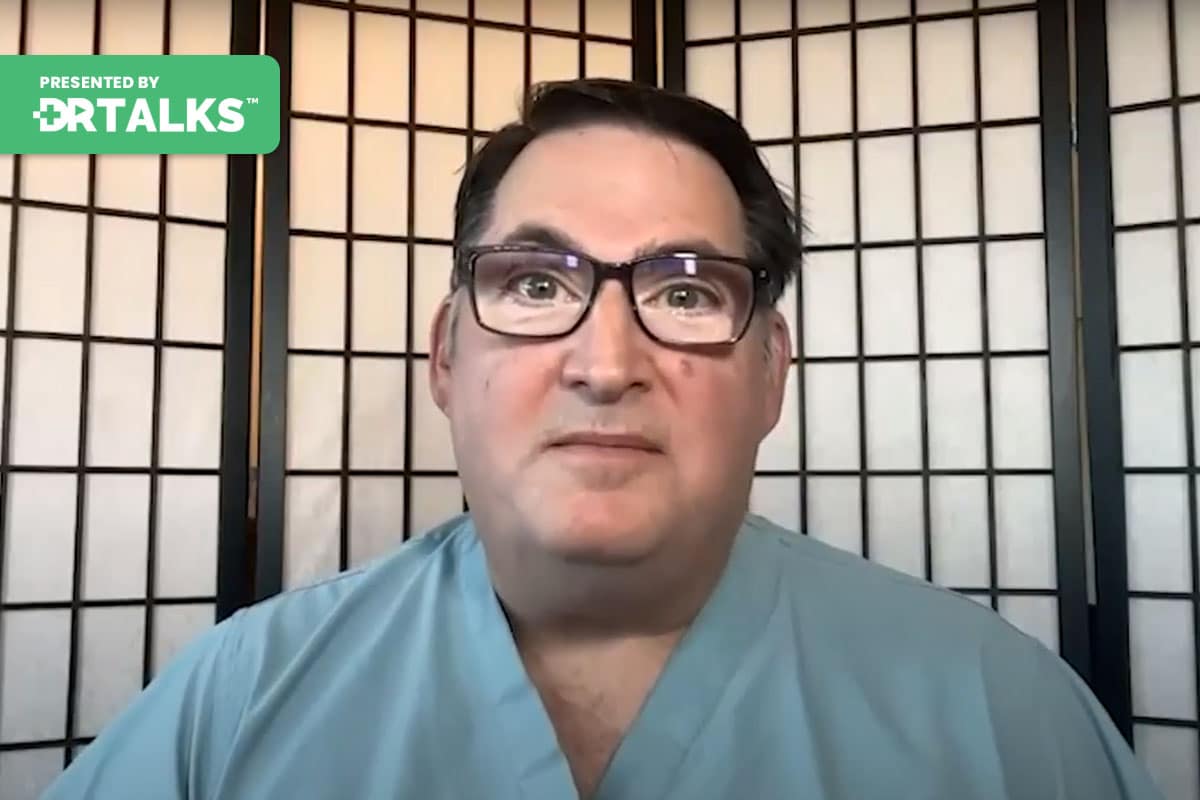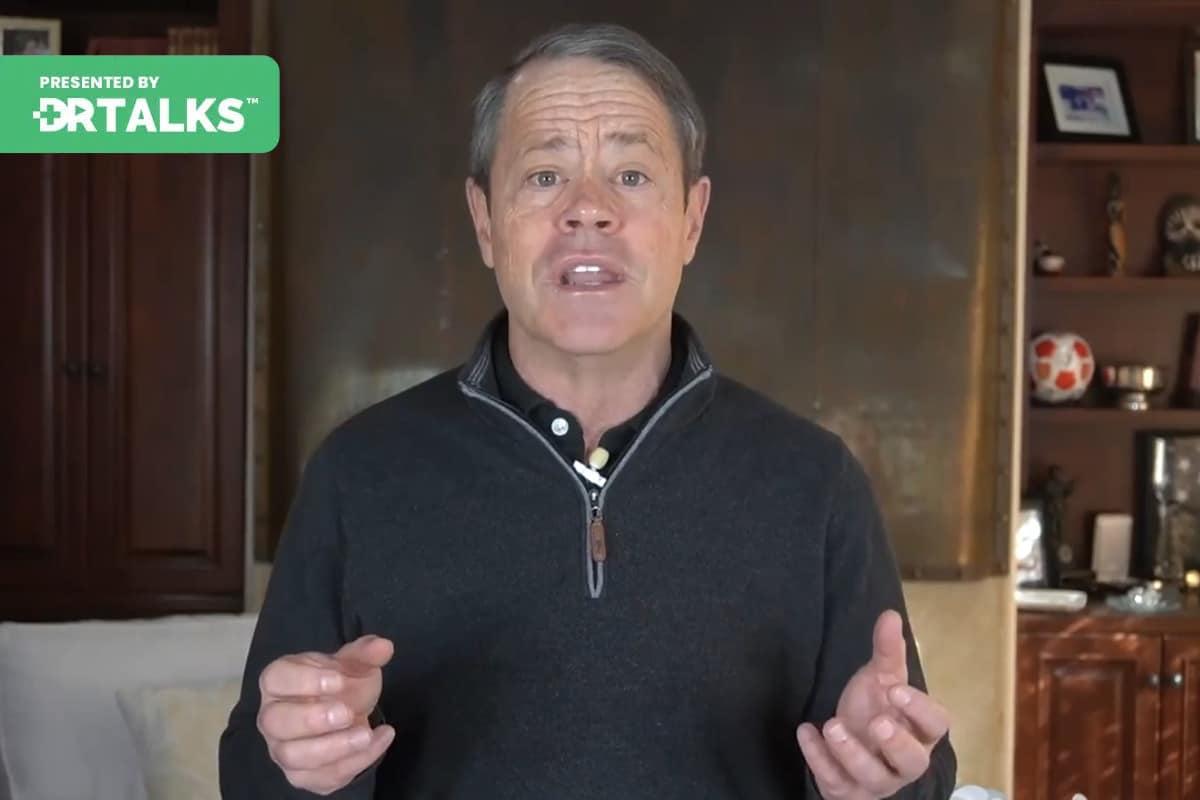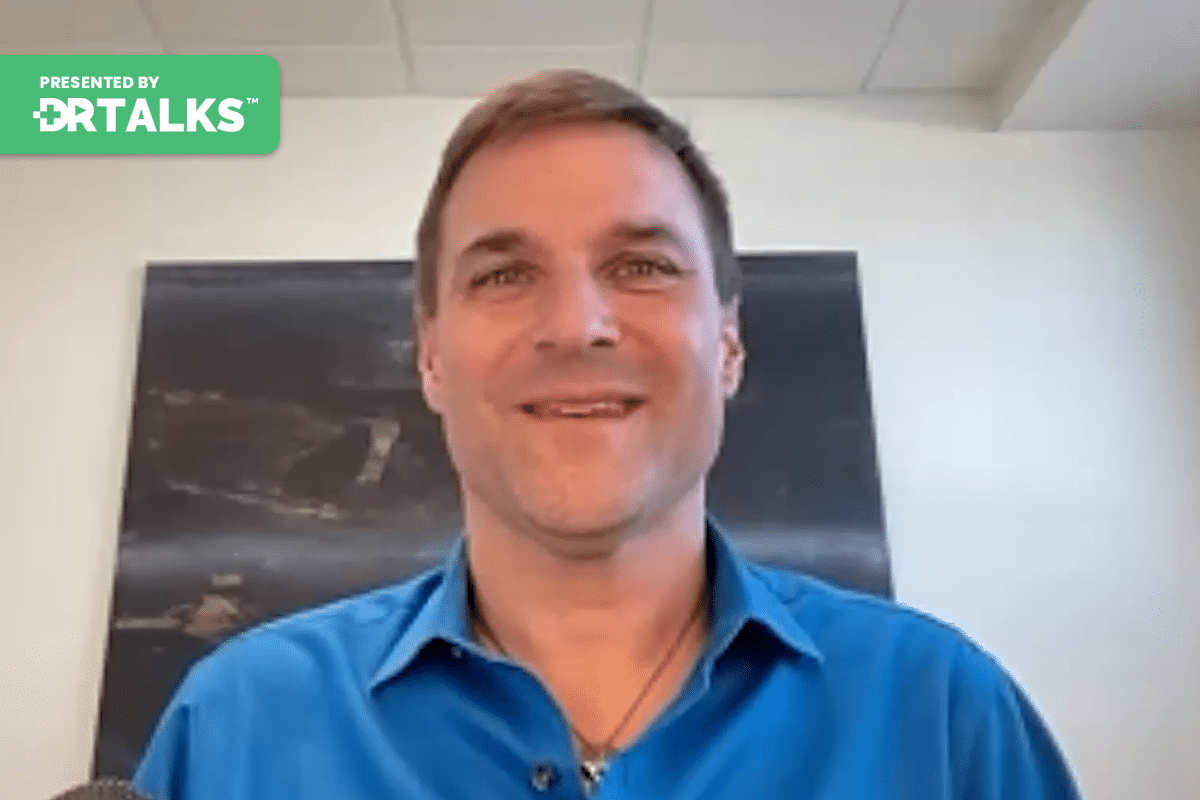Join the discussion below
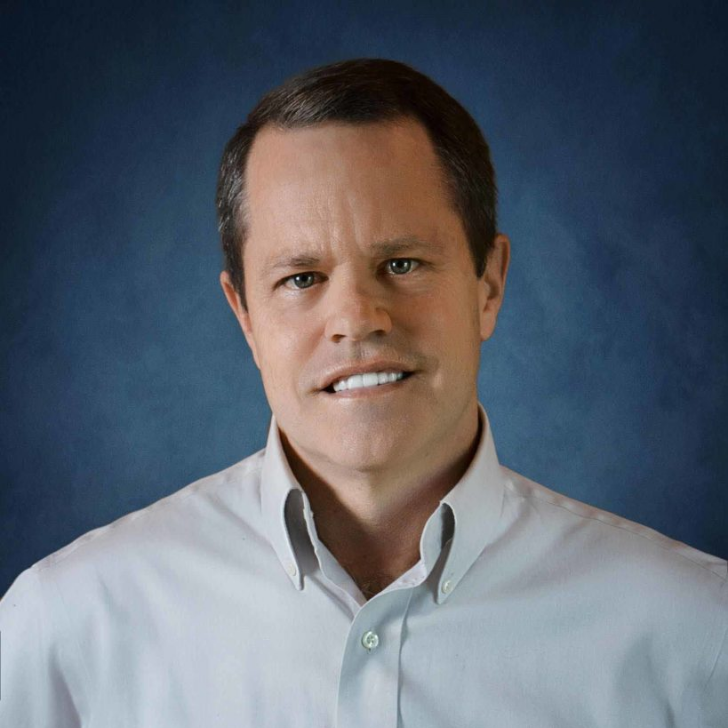
Tom McCarthy is a husband, father, author, speaker, entrepreneur, and investor who has owned businesses in the training, software, financial services, and restaurant industries. Tom’s clients in his training business include some of the worlds leading companies such as Cisco Systems, Microsoft, Salesforce, Wells Fargo, and MetLife. His latest book,... Read More
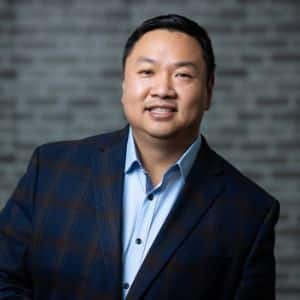
Dr. Ruan is the Founder and CEO of Texas Center for Lifestyle Medicine. He devotes his career in practicing and building systems that allow for efficient delivery of healthcare. He is a board certified internal medicine physician but also have advised with companies to improve their workflow, company culture, marketing,... Read More
- How can thoughts trigger genetic changes that allow for healing
- How breathing and other methods of ancient healing tactics such as Tai Chi is connected to brain frequencies that control the body’s hormonal systems
- Why focusing on energy healing is at the core of the best success stories in health
Tom McCarthy
I am super excited to have a dear dear friend of mine on next and somebody that all of you are gonna love, he is not only a dear friend, he’s my doctor, even though we don’t live in the same city is my go to person and and I go to him because he has such a wide breadth of knowledge and he’s always learning, he’s not one of those people that you know is like oh I know everything like you know, he wants to know everything and that’s why he keeps learning and learning and learning and growing and and every time I talked to him I always learn something new and you’re gonna learn so much from him. His name is Dr. Cheng Ruan, he’s the founder of the texas Center for lifestyle medicine and he really is a an innovator in functional medicine and really helping people take control of their health and and so he is so far ahead of of the traditional medical medicine, you know traditional medical world that he plays in and that’s why so many patients come like me from all over the world to this guy. So you gotta treat you get to hear from him and what we’re gonna be talking about is how to engineer a healing mindset. So Cheng I’m so excited to have you on and thank you so much for being here with us.
Cheng Ruan, MD
Thank you so much for having me on Tom and this is such a blessing to be able to talk about this with you. So thank you.
Tom McCarthy
Yeah, so you are a medical doctor, you know, integrative medicine, your internal medicine doctors. So, you know, all the standards of care Western medicine and you still use many of those, which is really awesome. But you go beyond that, right? You and that’s why you can solve the harder cases where traditional medicine falls short. You’re so inquisitive and you have so much knowledge. And today we’re gonna talk about how the power of mindset, which you and I were just talking about earlier is such a critical factor in people’s healing. So give us just kind of an overview of how mindset plays such a huge role in whether a person heals or not.
Cheng Ruan, MD
So let’s start out a little bit nerdy and go a little bit energetic. Okay, so you know, I started out doing more traditional medicine earlier on the career starting in 2012 and just didn’t really feel right, right? There’s something kind of missing. And part of it is that in medicine, the way we practice medicine and the way that people were categorized as looking at disease states rather than the actual human that’s behind the disease. Right? So every time I would talk about disease states, almost like I’m doing a disservice for people if I just kind of do the things that was traditionally trained in. So my mom was at a bunch of herbalists. So in the Chinese medicine realm, every person has different energy signature and you can’t treat the person the same. Otherwise they’re not gonna get into that healing phase, right? So there’s a difference between like the prescription of medicine and Western medicine and the actual healing healing is a journey to perpetual journey where medication is for a show short term specific outcome a lot of times that the outcome is not reached where the medicine doesn’t help reach the outcome. There’s sort of this abandonment of the patients that we kind of see and that’s what we’re seeing right now, especially throughout the pandemic. Right?
So and so you know the when I started doing Integrative Medicine in 2017 at texas center for lifestyle medicine. So we’re five years old now and I looked at the data, we looked at the data all together, me and my entire crew and we’re like well who actually heals? And who doesn’t is it someone was on a specific diet? Are they more plant based? Are they more animal based? What are they doing? Are there people who are taking specific supplements? Are there people who are taking specific medicines? Other people who have resources, meaning that they have like financial resources to get the best doctors in the world? None of that matter for the people who have the best outcomes. Okay, what matter is that something triggers them to change a marriage, a divorce, the death of a family member, a birth of a family member, right? Something changed within the identity of this person that, that trickled into the physiological manifestation of what a person has someone has, for example, some autoimmune disease. You see the autoimmune markers start going down or start going away right after some sort of a life event and someone has, you know, diabetes, you see those markers improving, someone has vast disease, you see those markets improving and it’s not a specific diet is not a specific supplement, but they all have one thing in common.
They realize that the mindset that they’ve been utilizing right in their life has is no longer serving them and something in their life that’s forced upon them as situation, whether it’s good or bad, we’re not gonna call it good or bad, require them to change their police systems and energetic. And then all of a sudden you see like the best outcomes and people, right? And so for me, you know, I’m like, okay, I just have to give myself a time out when I started realizing this. And then we’re like, well, how do we engineer health into people? How do we get people to create this successful mindset, which is what we’re talking about today. And so we started onboarding practitioners and health coaches that are more trained in mind, body medicine and boom, things exploded for me from then on. So mind absolutely important.
Tom McCarthy
This is not something they taught you in medical school.
Cheng Ruan, MD
I know, but I wish they had but I don’t think they knew right the way that we look at studies and data. A lot of it is double blind randomized controlled trials and pharmaceutical data. We’re not really looking at something that’s like this. But however, having said that there’s something called the placebo effect, which is that if you’re studying a drug or some sort of even a device, the placebo effect is that the brain can actually engineer a successful path for the body. But no one, no one is looking at how the placebo effect is doing it and deconstructed. So we actually deconstruct with the placebo effect is actually doing in our facility.
Tom McCarthy
I love it. So we’re gonna talk more about that. But this is so interesting because you know, you have people with the same condition, one will heal, one won’t even though they have the same medications, same condition. It’s the real, the real difference is what you’re just talking about is probably something within that person’s mind or you have somebody that may have a cancer and then they get the cancer taken out and they go into remission. But then it comes back because their mindset didn’t change. Probably they still had that mindset that was creating that dis ease. So I love what you’re doing. I mean, this is why I love this so much. I hope that all of you will reach out that at some point in time to find out more about what amazing Dr. Ruan does because you know, he’s got all sorts of great stuff, but let’s talk about that. So you just said you just said something pretty interesting, you found ways to deconstruct successful mindsets can be implemented. So take us through that process of you know what you guys do and and I know a lot of people listen if you’re not, if you think that just something from the outside is going to heal your chronic condition, it may help, but you’re the ultimate decider in your mindset. So please listen to what Dr. Ruan has to say here.
Cheng Ruan, MD
Yeah, absolutely. And one of the things that we look at is not just it’s it’s really hard to gauge someone’s mindset and call it 10, right? There’s no such thing as a good or bad mindset, it’s just it’s just a mindset. Right? And so what we have to identify is this mindset serving this person yes or no. I mean here’s a really good example of someone today, actually, let’s talk about that. So this person is very educated, she’s a professor, Okay. And as a professor, she researches everything and this and she happens to be diagnosed with Alzheimer’s disease, early onset Alzheimer’s disease, right? And then she come in and she had this giant stack of different things about gut health, brain health and immune health and how to balance it. And I mean, she carries with her so much knowledge, so much knowledge. But she came with her friend and her friends, like, you know what? She’s been deteriorating really over the last year. Okay. I’m like, okay, well let’s see what you’ve been doing. So it seems like she’s been on the best diet. She’s been on the best supplements money can buy or she’s seen the best doctors are the best diagnostics, right? So everything’s done there. And so while she has this giant stuck into information, but you know, guess what’s in the back of my mind, like what is her physiology? What is her state right now that she’s in? And her and her body language is a lot of hype. And when she’s talking she’s barely breathing. She wants to get as much out as possible, sort of in this, in this situation. Her shoulders are close to her ears.
What does that tell me about her energy? You know, her energy was one of fight or flight. She wasn’t right. Exactly. So she was in the uncertainty. Fight or flight. And we actually start talking about why that is and what we identified is that one thing changed about her life that perpetuated her journey into this, this memory loss and her husband passed away a year ago and that’s where everything started declining, right? I’m like, no matter what you put in your paper here about health, immune health. Let’s talk about your husband passing away, right? And then we can see just through talking that there’s sort of this aha moment that she was using all this information that’s external to suppress her internal struggle and not wanting to talk about the death of her husband. For me, I’m like, we have to talk about that in order as a foundation to heal and everything else is optional after that. And so if we construct the way that we talk to patients across all the medicine in this manner, we want to be able to honor what they’re going through their life situations. This is the actual winning mindset.
Tom McCarthy
I love it. I love it. And how many doctors would have even gone to the place where, you know, they found out about that husband dying a year ago and really take the time to talk about it. This is why you’re so unique. And hopefully some practitioners are watching you now too. And I know with medicine, you know, there’s a disincentive to actually do this right? Because time and get things done quick. But that’s what I love about you and the way you operate with your clinic, you actually, you really work on what’s gonna heal the person and and and take them into places that they might not want to go. But they need to go in order to really heal
Cheng Ruan, MD
Right and I’m not an expert in mental health or anything like that, but I like to get the conversation going now with the clinic we have for other professionals here right? That I rely on, right? So they all have their roles. But however, and this may come as a shock to you Tom the people who come to us, we’re not the ones delivering the health or the information that they eventually take into success is actually other patients. So we actually have individuals and group sessions. The people who are in the group sessions do significantly better in terms of anxiety, sleep, depression, mindfulness, right? And also disease states, they actually have biomarkers of aging that get better within the group systems. And one thing about the group ecosystem is that we’re harnessing the power of each individual people here as a collective for that collective energetic healing experience. And what’s even more surprising this since the pandemic, we’ve been only doing this on zoom online, but the energy is still so once the healing process. So I believe that to heal it requires the community and the community is one that’s of safety and of certainty and that’s where we really provide for patients and that takes their health a really long way. So it’s, you know, I’m not the hero, right? It’s the people, the people who come to us within the group settings, They become their own heroes and that’s what’s beautiful to watch in the transformation process.
Tom McCarthy
I liked earlier in the beginning to you the way you talked about medicine, medicine is meant for to be used for a short period of time. And if you can have the healing mindset and really not be in that fight or flight, which is not a healing state which by the way is a state that most people that have you know health challenges are in they’re afraid, right? They’ve gone to the internet and you know, they looked at all the things that can happen and they’re really in fight or flight. They’re in their sympathetic nervous system which prevents the body from healing itself. Talk about how when we get into that parasympathetic we get out of fight or flight. How can the body heal these diseases? Like we’re talking about you know, how is our body built so that it actually can heal that that people aren’t getting the advantage of because they’re so afraid all the time about this disease. They’ve been labeled with.
Cheng Ruan, MD
Let’s break it down. So you sense something called the sympathetic and the sympathetic system in neurology is something we call the go pathway in the brain. Like literally go like go go go right and then there’s the parasympathetic which is the freeze or this or the no go pathway. So we want to be able to balance a go and no go pathway or the sympathetic fighter flight and the parasympathetic rest and digest? There’s some people that are stuck in the parasympathetic, that’s just as bad as being stuck in sympathetic size. So we really need that balance, that yin yang balance right? Yang being sympathetic. Young being parasympathetic actually. Right. And so what happens is, let’s say if someone’s always triggered, let’s say it’s a psycho social emotional trauma that occurred. And let’s say they don’t even remember the events, maybe it’s in the childhood, right? But they grew up and they chose a profession from their physiologic state and that profession, maybe a nurse or a doctor, someone in the health care field and the person may feel their sense of self worth by providing aid to others. But over the years they’ve learned to self neglect. Right? So what happens is that physically looking at the person, okay, the shoulders maybe really up here all the fast show which is the outer covering muscle could be so tight up here. And sometimes when they turn their heads to face me, they’re not saying, hey Dr. Ruan there hey Dr. Ruan right, The entire corso has to move because they’re so locked up right here. This is the body keeping the score.
This book that’s called the body keeps score. This is the body keeping the score of the trauma that’s held up right here. Now why would the body do that? Well it’s very simple. So we do something called brain mapping. When we look at people’s brain physiology. So we can actually see trigger brains when the brain is triggered while the brain conducts the heart rate, the heart rate is always up. And then when that happens, the sympathetic response then shuts all the hormones into fight or flight hormones called cortisol and adrenalin or adrenaline. Okay. And these hormones take away blood flow from our gut takeaway blood flow from parts of the brain that create memory and they shunted towards the fight or flight parts of the brain and shunted towards guess what here? So you have a huge blood engorged mint of these pectorals and these deltoid is ready to fight and these neck muscles ready to take that impact. Like you’re a football player or that you’re a warrior, right? But you’re not about to go into battle. Your brain thinks you’re going into battle. So your blood literally gets sequestered in this area and so does your energy and that gets pain and stiffness over time. And so this is why when we do deep relaxation exercises, we’re going from sympathetic to parasympathetic relaxation, mindfulness meditation, right? And the blood flow will literally like just to start draining down. That’s why when people get angry, they get red as the blood flow coming up here, right? And they take a deep breath and their bluff and the blood flow goes away too. Like the relaxation parts of the body and the digestive part of the body and we’re not red anymore. They just look normal after that. So, so there has to be a balance between the two otherwise physiologically the body is incapable of regeneration or deep sleep as well.
Tom McCarthy
And so when we can go on purpose into a parasympathetic state again, it’s you don’t want to be in parasympathetic, your whole life. Then you’re basically, you know, a vegetable or not not functioning that much. But when we can do it on purpose, we can then say start generating our natural healing response, correct?
Cheng Ruan, MD
Correct. And here’s what we know for example, we know that techniques and mind body medicine, like deep breathing exercises and meditation and exercises dramatically changes our gut bacteria, gut microbiome, right? We know that it dramatically changes blood flow to different parts of the brain. Different parts of the body. You can actually see that on imaging right? With deep breathing exercises, right? We know that just five minutes meditation and they can really change our parasympathetic balance. There’s actually machines and devices that we actually have here to measure your sympathetic parasympathetic balance. So these are all rooted in science. But a big portion of it is rooted in that placebo effect is that our brains can actually generate this type of physiological response and that’s why the placebo effect actually exists?
Tom McCarthy
Yeah, that’s amazing. So what are some tools that you would suggest to people to help generate this mindset of healing? Like what are some things they can do right now to just you know, start to get their body to help heal and we’re not talking about things that you know, two minutes later you’re cured, but things that can start that process along the road. What are some things that you could give people to help them out?
Cheng Ruan, MD
The two valuable tools and they seem so simple but so powerful, right? The very first tool also sort of uncomfortable tool for people to do is to just take a second, just step back and think in my life is it is my current life going to the trajectory that I wanted to go, okay? And if not, okay then most people who are watching this, probably not because you’re watching this right? If that’s not the trajectory that you’re likely to go figure out if it’s due to excess or lack, Okay, so excess means that in my doing too little I must do more. Okay? So that’s so excessive or should I go into lac mode where like I’m doing too much. Why don’t you just kind of take a step back? So I call it the power of the pause. Most people feel like they’re not doing enough. In reality they’re doing so much that they’re forgetting to pause, right? So parasympathetic pausing is literally just just take a step back and pause and think easiest way to do this is when you have a conversation with every person you meet for the next 24 hours. Okay When they’re when you’re done speaking, when they’re done speaking count to four in your brain. 1000 to 1003. 1004. 1000. Just look at me. I write that’s pausing and that pause will actually create an energetic bond between you and the other person. Doesn’t matter if it’s a stranger or someone that you know what happens is that pause will actually fill the void with things that should come out in the first place and that’s what energy is, right? It’s the power of the pause. That four second pause that’s right there like comfortable. But we have people practice it. And the second thing that I recommend people to do is take away the word need and replace the word want. Okay so the word for example you say hey I need some coffee to stay away. What do you really need coffee to stay awake or do you want it? So the minute you replace the word want is actually totally in control and you say it you actually deserve it right? People use the word need as something that’s outside of their control by replacing what the word want. You change up a lot of your vernacular, your conversations with people and using that word plus that four second pause over the next 24 hours. Yes it’s gonna be uncomfortable but you start understanding your entire physiologic state can be changed when you converse with people in those manners. So those are my two most really powerful techniques to start.
Tom McCarthy
Yeah and most people are on autopilot. They’ve got no clue if you know thinking about you know, do I, am I doing too much and my, you know not doing enough and then the one with need to one, I like a lot because it just, it feels better like if you go I need to go pick up my kids then it’s like oh victim but but I want to go pick up my kids right? You know then it’s yeah and plus your kids probably want you saying it that way to not like I need to go pick them and I want to go pick up my kids right? So it just, I mean even just me saying that you know my kids are 29 26 it creates a different feeling inside me that does change my mindset. That’s great advice.
Cheng Ruan, MD
And it creates a different feeling inside them to yeah. So hey guys, I want to pick you up at 3: 15. That’s a totally different conversations and I need to pick you up at 3:15. Absolutely dynamic. Yeah and the and the energy actually becomes so vibrant out to that. So you, you leave you end the day with a lot of thankfulness if you use those two weeks.
Tom McCarthy
So you talked about the mind being able to change basically. Like you even said markers of aging can can the mind also interact with D. N. A. Turning it on, turning it off things like that. Are you? You know what because some people go I was just built this way you know this is just the way I am. They don’t really see things being able to change. What is the new science telling us now?
Cheng Ruan, MD
Yeah so the answer is yes. Let’s not call it changing D. N. A. It can activate certain portions of our genetics. Right? And so the in this concept we actually just recently talked about so on Thursdays with my patients we actually do group discussions around this and our last one is genetics. Are you screwed? That’s like the title of the group. That was that’s really fun. And one thing that we talked about is exactly what you just asked me here, can I change some things within my genetics And I would say that you can actually change things not just in your genetics but in multiple generations down. So there’s this concept of inherited traumas or inherited family trauma. So and what happens is that there’s a physiologic state that gets inherited. So we know this based on studies that’s done on the grandchildren and the great grandchildren of holocaust survivors that two generations down their cortisol will spike with loud banging noises. Okay questions down huge generations down. Yes.
Tom McCarthy
Not not people that were ever in the holocaust.
Cheng Ruan, MD
Right? Yeah we see this in my studies and dog studies to that. They actually shocked mice. The granddaughter of mice. Right? We see that two generations down the Pavlovian response to shock to a sound. And two generations down the responding to that sound. And that that cortisol response they actually measure cortisol in the mice tail. Cortisol response to stress response is actually inherited. Now the question is why? Well it turns out we have these things called C. D. N. A. Is that actually get transmitted down? So as they get transmitted down it’s actually creating cellular signaling within our genotypes. And now we have the technology to like track these things down in different generations right?
And actually this is how we track ancestry to be honest like with like 23 me and stuff like that. And so there’s new data looking at the phenotype expression phenotype means that okay you have these C. D. N. A. That’s tracked down to this generation. Are you expressing it? Yes or no. And so as it turns out there’s a lot of things that we can do for balancing in life that we can actually alter the transmission of specific C. D. N. A sequences through mind body medicine, breathwork, meditation etcetera etcetera. And so it doesn’t have to have a lot of these traumas that gets inherited doesn’t have to go to future generations. Right? And so there’s a lot of very fascinating data behind this and what’s great is we see this in real life results with people. That’s why I love talking to families into our groups and stuff like that because it affects massive generational changes within their families.
Tom McCarthy
So important for all of us that have kids or having kids to clear up ourselves. Right? So that we’re not passing it down like we can impact future generations by having this healing mindset and being healthier. Talk about trauma because you brought that up several times. What role does trauma play and illnesses? And is it a contributing cause too many illnesses or is it you know, how does it work with illness, trauma?
Cheng Ruan, MD
Sure. So let’s kind of define trauma, right? You have physical trauma and you have eventful traumas. Right? And so the eventful traumas, you break down into two other subtypes, you have big t trauma which is something really bad to happen, right? And you have little t trauma that’s not necessarily considered bad but maybe more frequent. Right? Maybe you were born under a certain type of parenting style. Right? And so if you were born into a very strict household that’s very structured throughout your early childhood, your sense of individuality. Individuality may actually be naturally downplayed just to get through that strict household. Right? And so that exhibits very differently than someone who maybe lost a parent or both parents and they have to grow up much faster and take care of all the siblings. Right? So so those are those are not necessarily like big T major traumas, Those small small T. And most people have sort of these small T. Or little T traumas that are that are there. And so if we if we experience these things so our physiologic state our energy is based on what those molded us in so you know, and there’s no such thing as good or bad.
They’re just is. Right? So we all have little tease little traumas that we kind of grew up with and that makes us the person we are. The first thing to understand is that trauma is not a bad thing because it made us into the people we are today and we’re and we’re survivors, so served us well. But at some point it’s no longer going to serve as well. Right? And this could be the professor just talked about earlier in the interview that’s looking at all these different things but really stemming from her husband passing away. Right? So her caretaker caregiver was actually passed away and that relationship was in jeopardy. So that triggered earlier memories for her and her father, right of her father early passing away as well. So that triggered an entire engagement process of physiologic change. And there’s different things that and different neurotransmitters within the brain. That’s just like kind of lighting up. We actually see that on brain mapping, you know, but these traumatic responses once again, not good or bad.
They just our and we have to figure out are these things serving us, right? Maybe they served us at one point, maybe my fight or flight physiology served me by, you know, not being, you know, killed in a war right? With because I survived and I have three generations to thank for that, right? But now is it still serving me is my trajectory in life predicated on those traumas if it is, how do I terminate that? An engineering Very different mindset. Right. And so and so traumas are at the root of a lot of different underlying disease days. We see like hypertension, like prediabetes, diabetes, fatty liver disease is a huge one, right? And we see this in Alzheimer’s disease, right? And we see this in all sorts of different disease states that trauma does have a big part of now, the reason I discovered this, you’re not even gonna expect I used to do hospice medicine, right? One of the greatest things about hospice medicine by the way is I get to talk to people who know they’re gonna die. Someone knows their exploration date or supposed expiration data. They let go of everything. Their physiologic state is different. They’re at peace. They have no filter. Right? And so these are the people who are in hospice who live longer than the people who are getting aggressive treatment for whatever their disease stings. And so I’m like, well, what is going on here? But why do we have to wait until we get a terminal illness or diagnosis? Right. And we don’t have to And and that’s that’s the basics of it.
Tom McCarthy
That’s amazing though, that people who just let go live longer than people who are getting aggressive treatment for the the same type thing because they’ve they’ve gotten they’ve gotten rid of all that stress and worry and then the body can just relax and they probably enjoying their life a heck of a lot more than the people getting the aggressive treatment that are feeling crappy, you know, a lot of the times. So yeah.
Cheng Ruan, MD
And health care doctors witnessed this, right? I was one of them. And in fact, if you actually do a cross sectional survey, health care doctors are the least burnt out. Happiest doctors in every medical field, out of all fields. How interesting, Right? Yeah.
Tom McCarthy
Well you brought to you brought to a lot of people from a very scientific minded research based person like you are. I mean this guy is like I mean he is devouring research and learning and growing, but also came from a family where as he mentioned, his mom was an acupuncturist and herbalist, right? So he had that mind body connection also and he’s molding the best of both worlds and I absolutely love what he does. He’s my doctor where can people, how can people connect with you and and either come to your clinic or take some of the online courses that you have give, give people the best way to get in touch with you and your clinic.
Cheng Ruan, MD
Sure, there’s three ways. So well the first actually people I just finished my brain health summit or interview over 60 different experts and brain health. We actually talk about the human mind set quite a bit. That’s betterBrain.info. That’s my website. Betterbrain.info. So here at Texas center for lifestyle medicine you can be more than welcome to be a member of our clinic. So that is T X. Like texas TX Life med dot org but more but I’m really easily found on social media because I’m very loud on social media. So look for my name on instagram, facebook linkedin, whichever platform you use. So my name is Cheng Ruan, C H E N G R U A N M D and you can find me on all the platforms. Thank you so much.
Tom McCarthy
We can see it right on your chest there too. So we got this for us also. Yeah. There you go. Yeah. And for your for the Texas center for lifestyle medicine. You also, people don’t have to be in Texas, right? They can work with you, telemedicine, is that right?
Cheng Ruan, MD
Well, yes and no. So what happens is that we are at the mercy of the texas medical board and descriptions here. And so people do want to come from outside of Texas. You physically have to show up. But we do tell telemedicine as well once you show up then you can work with them wherever they are. Yes. Yeah. By the way we do take most insurances including Medicare and in fact I design insurance based programs for the nation. That’s what I do. Health and so you wanted to utilize, we’re not a concierge service. Were strictly an insurance based service. So yeah, I feel for you to utilize that as well.
Tom McCarthy
That’s really unique. And the type of medicine that he practices most people are concierge and your out of pocket a lot of money. So I can’t recommend my friend highly enough. And he’s just such an amazing human being. You can see he’s got a huge heart and he’s out to, he’s out to help the world. He’s really making a huge dent in so many people’s lives. Thanks for being on with us. It’s always an honor to talk to you my friend and keep doing the amazing work you’re doing.
Cheng Ruan, MD
Tom, it’s such an honor to talk to you and all the value that you bring as well. And I am so excited to be part of this whole thing that I’m just using excitement. You can see me in my chair, I’m gonna score me and the fact that I get to have reach your audience and talk about these things in practicality. I think that’s what we really need in the world, simple and practical.
Downloads

